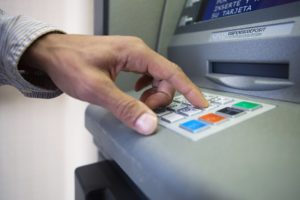 Today’s top story: People with COVID-19 payment accommodations are finding mistakes in their credit files. Also in the news: 6 tips to teach your kids lifelong money lessons during the pandemic, Americans lost $77 million to Covid-19 fraud, and what to do if you can’t pay your taxes next week.
Today’s top story: People with COVID-19 payment accommodations are finding mistakes in their credit files. Also in the news: 6 tips to teach your kids lifelong money lessons during the pandemic, Americans lost $77 million to Covid-19 fraud, and what to do if you can’t pay your taxes next week.
People with COVID-19 payment accommodations are finding mistakes in their credit files
One mistake could lower your credit score by nearly one hundred points.
Use these 6 tips to teach your kids lifelong money lessons during the pandemic
A unique opportunity.
Americans lost $77 million to Covid-19 fraud — and that’s just the ‘tip of the iceberg’
Scammers never rest.
What to do if you can’t pay your taxes next week
You have a few options.
 Today’s top story: How new grads can handle 3 essential post-college questions. Also in the news: A new episode of the SmartMoney podcast on money goals and bank bonuses, the possibility of another stimulus check, and everything that goes away when coronavirus benefits end in July.
Today’s top story: How new grads can handle 3 essential post-college questions. Also in the news: A new episode of the SmartMoney podcast on money goals and bank bonuses, the possibility of another stimulus check, and everything that goes away when coronavirus benefits end in July. Today’s top story: How to bank when you can’t go to the bank. Also in the news: Don’t fall for COVID-19 student loan relief scams, file your claim in the Yahoo data breach settlement by July 20, and how to hire a financial advisor who won’t rip you off.
Today’s top story: How to bank when you can’t go to the bank. Also in the news: Don’t fall for COVID-19 student loan relief scams, file your claim in the Yahoo data breach settlement by July 20, and how to hire a financial advisor who won’t rip you off. Today’s top story: Now is the time to teach your Gen-Z kids about credit. Also in the news: 1 in 4 retirees say COVID-19 may force them to go back to work, when and how should you report your no-show stimulus check to the IRS, and how to set up a zero-based budget.
Today’s top story: Now is the time to teach your Gen-Z kids about credit. Also in the news: 1 in 4 retirees say COVID-19 may force them to go back to work, when and how should you report your no-show stimulus check to the IRS, and how to set up a zero-based budget.  Today’s top story: What to do if your kid’s emergency fund is you? Also in the news: Frequently asked questions about Coronavirus unemployment, how 3D home tours are allowing buyers to keep their distance, and why you should make a COVID-19 backup plan before returning to your office.
Today’s top story: What to do if your kid’s emergency fund is you? Also in the news: Frequently asked questions about Coronavirus unemployment, how 3D home tours are allowing buyers to keep their distance, and why you should make a COVID-19 backup plan before returning to your office.